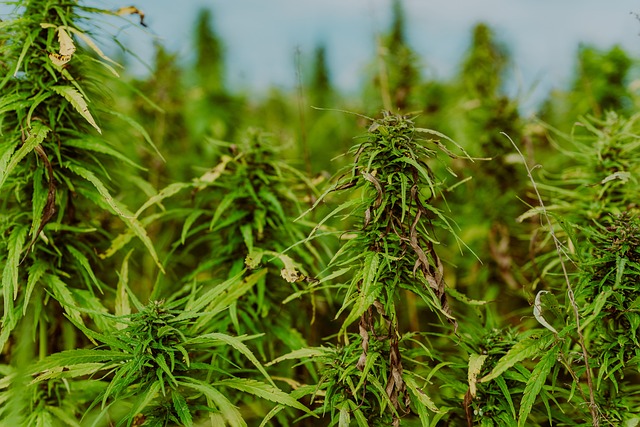2023 has seen THCA (Tetrahydrocannabinolic Acid), a non-psychoactive cannabinoid found in cannabis plants, gain significant attention in Hawaii for its potential health benefits and legal status. In Hawaii, THCA is legal under the state's medical cannabis program and adult-use cannabis legislation, provided it remains in its original form and hasn't been heated to convert into psychoactive THC. The recent legislative changes have opened up opportunities for consumers to explore THCA's therapeutic properties, including anti-inflammatory and analgesic effects, without the mind-altering impact of THC. Consumers are advised to start with low doses, follow product labels, and consult healthcare professionals, especially if they have pre-existing conditions or are sensitive to cannabinoids. Proper storage and adherence to local regulations are crucial for safety and legal compliance. With its unique position in the cannabis spectrum, THCA offers a promising alternative for medical use in Hawaii, with products available at licensed dispensaries.
Exploring the intricate relationship between THCA flower and its impact on health, this article delves into the nuances of this emerging cannabinoid within the context of Hawaii’s unique legal framework. As THCA gains prominence in the state’s market for its potential health benefits, it is imperative to understand both the therapeutic properties and the side effects associated with its consumption. This piece offers a thorough examination of THCA flower’s psychoactive attributes, dosage guidelines, and safety measures to ensure informed usage. Join us as we navigate the balanced perspective on the benefits and risks of incorporating THCA into one’s wellness routine, particularly within Hawaii’s regulatory landscape.
- Understanding THCA Flower and Its Legal Status in Hawaii
- The Emergence of THCA as a Prominent Cannabinoid in Hawaii's Market
- Potential Health Benefits and Side Effects of THCA Flower Consumption
- Navigating the Psychoactive Properties of THCA Flower in Hawaii
- THCA Flower: Dosage, Methods of Consumption, and Safety Considerations
- Balancing Benefits and Risks: A Comprehensive Look at THCA Side Effects in Hawaii's Context
Understanding THCA Flower and Its Legal Status in Hawaii
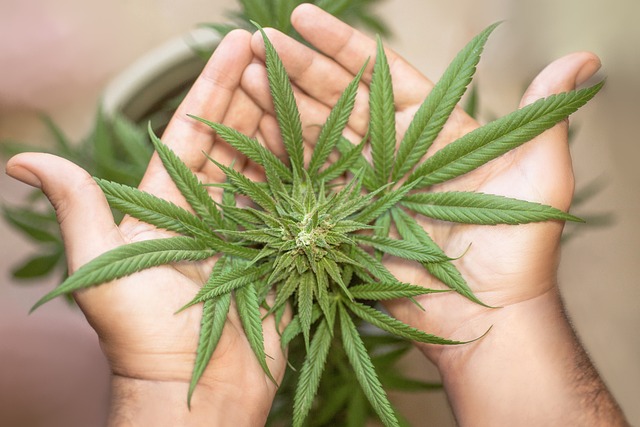
THCA, or Tetrahydrocannabinolic Acid, is a non-psychoactive cannabinoid found in raw cannabis plants, which, when heated, converts into the well-known psychoactive compound THC. Understanding THCA and its legal status in Hawaii is crucial for consumers and policymakers alike. In Hawaii, THCA’s legal standing is aligned with the state’s broader cannabis regulations. The Aloha State has a comprehensive medical cannabis program and has also legalized adult-use cannabis under the Hawaii Recreational Cannabis Act, which became effective in 2020. This legislation allows adults to possess, cultivate, and gift cannabis, with specific regulations governing the amount one can have and grow. THCA flower, in its raw form, falls under these regulations, provided it is not processed or heated in a way that converts it into THC. The nuances of THCA’s legal status highlight the importance of understanding the distinctions between different cannabinoids within the evolving landscape of cannabis laws in Hawaii. Consumers should be aware that while THCA itself does not produce psychoactive effects, it is precursor to THC and is often sought after for its potential therapeutic benefits, including pain relief and anti-inflammatory properties. As such, the legal clarity around THCA flower in Hawaii allows consumers to make informed decisions about their cannabis consumption while navigating the state’s regulatory framework.
The Emergence of THCA as a Prominent Cannabinoid in Hawaii's Market
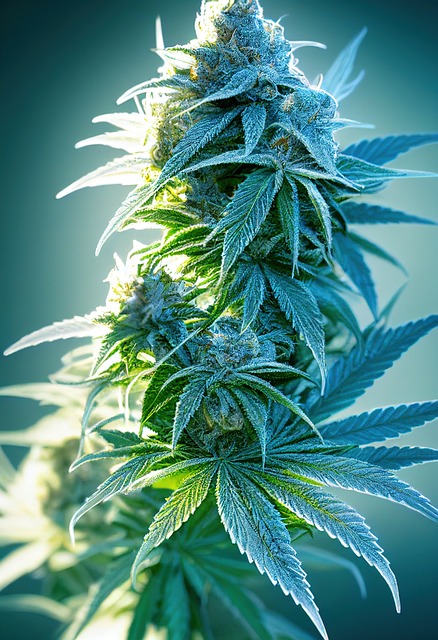
2023 has marked a significant shift in Hawaii’s cannabis landscape with the emergence of THCA (Tetrahydrocannabinolic Acid) as a prominent cannabinoid. As regulatory frameworks have evolved, allowing for the legal use of THCA in Hawaii, consumers and producers alike are exploring the potential benefits and effects of this non-psychoactive precursor to THC (Delta-9 Tetrahydrocannabinol). The interest in THCA stems from its promising therapeutic properties, which include anti-inflammatory, neuroprotective, and possibly antiemetic effects. With the island’s rich cannabis culture and a growing market for cannabis products, THCA has become a sought-after compound, often utilized in raw cannabis extracts and edibles, where it maintains its non-psychoactive status.
The legalization of THCA in Hawaii represents an innovative step forward in the island’s approach to cannabinoids, offering consumers a wide array of choices beyond traditional THC products. This shift has led to a surge in research and development, with local cultivators and manufacturers focusing on the cultivation and processing of high-THCA strains. As a result, Hawaii is positioning itself as a leader in the exploration and utilization of this cannabinoid, contributing to the overall expansion of the state’s cannabis industry. The implications of THCA’s emergence are multifaceted, influencing not only consumer preferences but also shaping the legal and agricultural landscape of Hawaii’s cannabis market.
Potential Health Benefits and Side Effects of THCA Flower Consumption
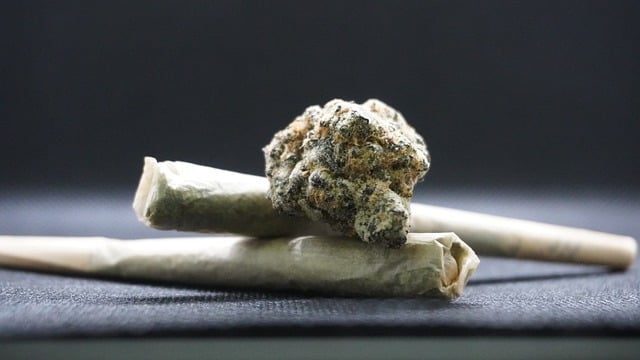
THCA, or Tetrahydrocannabinolic Acid, is a non-psychoactive cannabinoid found in the Cannabis sativa plant. As of the knowledge cutoff in 2023, THCA is recognized as legal in Hawaii under state law, provided it contains less than 0.3% THC by weight. This distinction has significant implications for those seeking the potential health benefits of cannabis without the psychoactive effects associated with its more well-known counterpart, THC.
Research on THCA has indicated a variety of potential health benefits. Preclinical studies suggest that THCA may possess anti-inflammatory, antiemetic, antispasmodic, and neuroprotective properties. It’s been explored for its role in alleviating symptoms associated with nausea and vomiting, as well as its potential to protect nerve cells from the effects of certain neurotoxins. Additionally, THCA has shown promise in reducing inflammation and pain, which makes it a subject of interest for individuals dealing with conditions like arthritis or chronic pain.
However, it’s important to approach the consumption of THCA flower with caution. While the legal status of THCA-rich hemp products varies by state, with Hawaii allowing such products under certain conditions, potential side effects should be considered. These can include mild psychoactive effects if the THCA is degraded into THC upon heating or decarboxylation, dizziness, lethargy, and in some cases, anxiety or paranoia, particularly at higher doses. Individuals with a predisposition to these conditions should be especially careful with their dosage.
For those considering the use of THCA flower for its potential health benefits, it is advisable to consult with a healthcare professional to ensure safe and responsible consumption. As with any supplement or medication, individual responses can vary, and what is beneficial for one person may not have the same effect on another. The legality and availability of THCA flower products also depend on federal and state regulations, which continue to evolve.
Navigating the Psychoactive Properties of THCA Flower in Hawaii
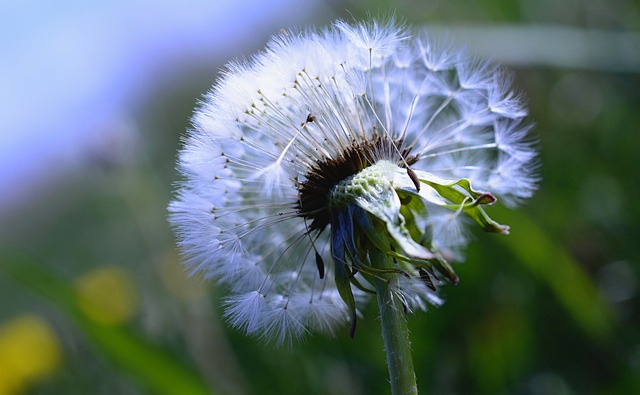
In Hawaii, the psychoactive properties of THCA flower have garnered significant attention as its legal status has allowed for a deeper exploration of its effects. THCA, or tetrahydrocannabinolic acid, is the raw form of THC, which is the primary psychoactive component found in cannabis. Despite being non-psychoactive itself, THCA becomes psychoactive when exposed to heat, transforming into THC during the decarboxylation process that occurs when cannabis is smoked or vaporized. In Hawaii, where THCA flower is legal, consumers and researchers have been navigating its potential benefits and effects with a growing interest. The legal framework in Hawaii has enabled both medical and recreational use of cannabis, providing a unique environment to study the nuances of THCA’s psychoactive nature. Users may experience a range of effects depending on various factors such as strain potency, individual dosage, and tolerance. It’s important for users to approach THCA flower with caution, as its transformation into THC can lead to unexpected psychoactive experiences if not handled correctly. The legal clarity in Hawaii has also facilitated the creation of a regulated market where consumers have access to quality-tested products, ensuring safety and consistency in their experiences. As such, Hawaii serves as an interesting case study for understanding the psychoactive properties of THCA flower and its role within the broader cannabis landscape.
THCA Flower: Dosage, Methods of Consumption, and Safety Considerations
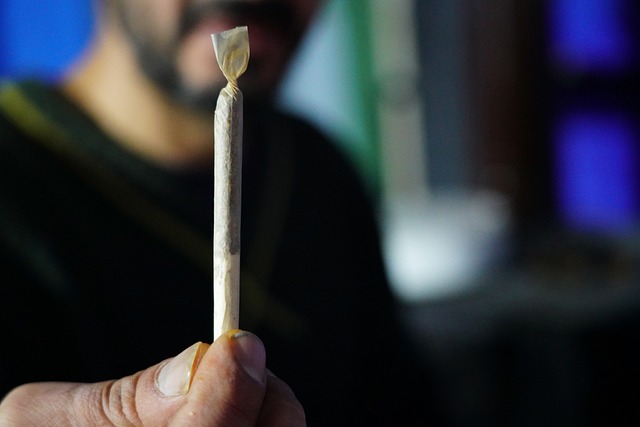
The THCA flower, rich in tetrahydrocannabinolic acid, is a non-psychoactive cannabinoid that has garnered attention for its potential therapeutic properties. As THCA is considered legal in Hawaii under state law, consumers have access to this compound without the psychoactive effects associated with its decarboxylated form, THC. Dosage of THCA flower is a critical factor in determining its efficacy and safety. Users should start with a low dose to assess individual sensitivity and gradually increase as needed, adhering to the product’s recommended dosing instructions. Methods of consumption for THCA include vaporization, which allows for precise temperature control to activate THC from THCA if desired, or consuming it in its acid form for its unique effects. Edibles and capsules are other consumption methods that offer controlled dosages. Safety considerations are paramount; users should be cautious about combining THCA with other medications due to potential interactions, and it is not recommended for pregnant or breastfeeding individuals. Additionally, those with pre-existing health conditions should consult a healthcare professional before use. Precautions should also be taken to store THCA flower securely away from children and pets, as accidental ingestion can occur. It’s essential to comply with local regulations regarding possession and consumption of cannabis products, even where they are legal, to avoid legal repercussions.
Balancing Benefits and Risks: A Comprehensive Look at THCA Side Effects in Hawaii's Context
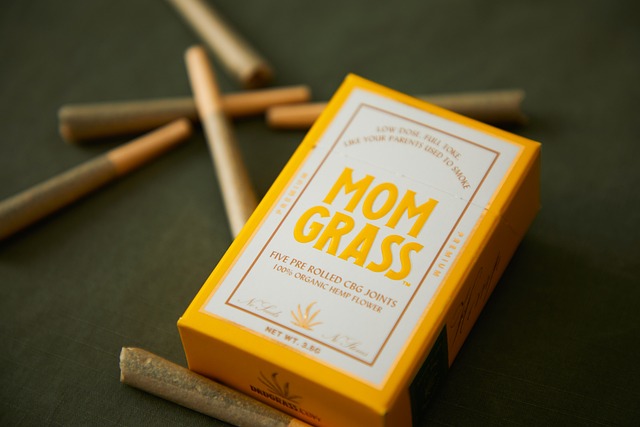
In Hawaii, where THCA (Tetrahydrocannabinolic Acid) has been legalized for medical use, understanding the balance between benefits and risks is paramount for consumers. THCA, a non-psychoactive precursor to THC found in cannabis and hemp plants, has garnered attention for its potential therapeutic properties, including anti-inflammatory, neuroprotective, and analgesic effects. As patients across Hawaii explore the medical applications of THCA flower, it is crucial to consider the potential side effects associated with its consumption. Common reported side effects include dry mouth, red eyes, dizziness, and anxiety, which are generally mild and transient when proper dosing guidelines are followed. Users with pre-existing conditions or those sensitive to cannabinoids should approach THCA with caution, as individual sensitivities can vary widely.
Navigating the legal landscape of THCA in Hawaii involves adherence to state regulations that define acceptable use and dosage forms. The legality of THCA hinges on its source; it must be derived from hemp compliant with the 2018 Farm Bill. This legislative framework ensures that THCA products available in Hawaii are subject to strict quality controls, which helps mitigate potential side effects through standardization and labeling requirements. Consumers should always procure THCA flowers and products from licensed dispensaries to ensure safety and efficacy. Engaging with healthcare professionals is also advisable to balance the benefits of THCA with an informed understanding of its side effects, particularly for those integrating it into their health regimen.
THCA flower, a non-psychoactive cannabinoid found in hemp and cannabis plants, has garnered significant attention in Hawaii due to its potential health benefits and unique legal status. As highlighted throughout this article, while THCA is legal in Hawaii under certain conditions, it’s crucial for consumers to understand its effects and how they can safely incorporate it into their wellness routines. The emerging market in Hawaii has embraced THCA, recognizing its advantages, but it’s equally important to acknowledge the side effects associated with its consumption. Users should be mindful of individual sensitivities and adhere to recommended dosages to mitigate any adverse reactions. In conclusion, while THCA flower offers a promising addition to the wellness landscape in Hawaii, consumers are advised to approach its use with informed decision-making, always prioritizing safety and compliance with local laws.
